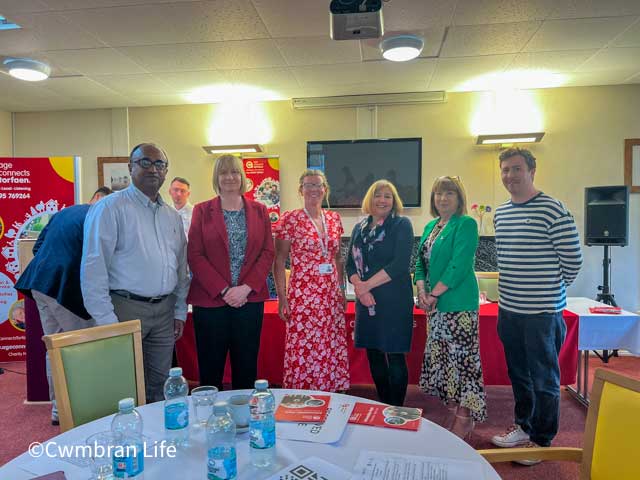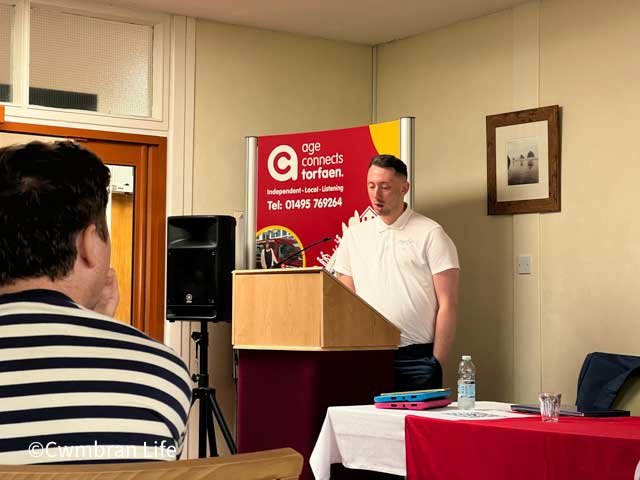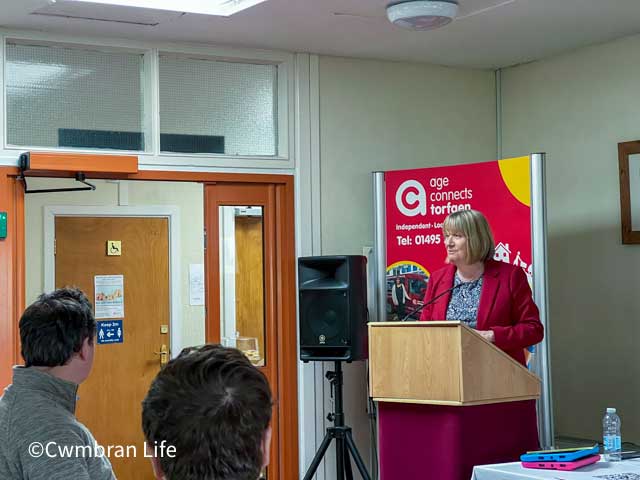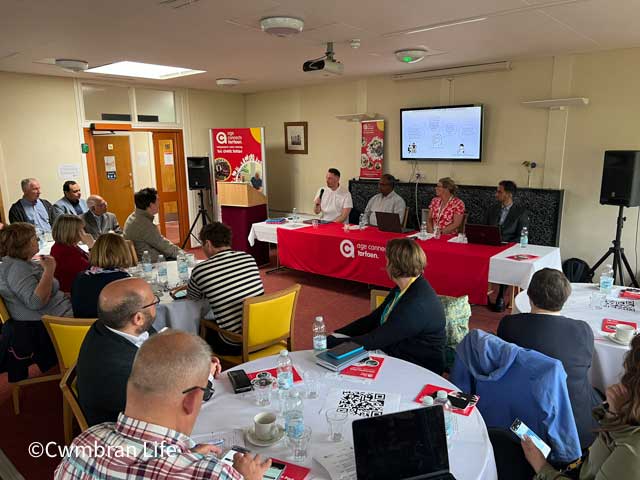A group of people living with dementia in Torfaen are helping to develop an app that could improve the lives of others and their carers.
The technology aims to support people with the early stages of dementia by helping them to live at home independently for longer. Cardiff Metropolitan University, Age Connects Torfaen and Cwmbran-based AITutoring worked together to create MemoryConnect.
A user can get support from the app during the evening to help with routines to keep them calm and avoid confusion as the sun goes down. It aims to learn about their lives to give personalised alerts.
A familiar voice
Artificial intelligence allows a user to hear reminders and advice from a familiar voice after it’s been cloned, maybe a relative or friend. The app has dementia-friendly games, animated cartoons to show steps of tasks such as brushing teeth, and can monitor sleep patterns to help someone with their care plans.
People with dementia sometimes don’t drink enough fluids so the app can use notifications and guides to ensure someone drinks more water.
Last Friday (24 May 2024), MemoryConnect was showcased to a room full of people including Heléna Herklots, Older People’s Commissioner for Wales, Torfaen MS Lynne Neagle and Cllr David Daniels, cabinet member for adult services and housing, at Age Connects Torfaen in Griffithstown.

Professor Jon Plattts, Dean at Cardiff Metropolitan University’s school of technologies, said they do “computing in a creative way” to show “people what computing can do for them.”
Emma Wooten, from Age Connects Torfaen, said: “People living with dementia and their carers have been involved at every stage of its [the app] development” and used their “lived experiences”.
She said people living on their own, with others, and in supported accommodation had been involved.
Their feedback led to changes with “fonts, colours, music” and “each step of the animations had been chosen with them so it’s something they can follow through.”

Sion Brown, from AITutoring, explained how people “respond more positively to the voice of a loved one”. He said the app could highlight potential problems in a user’s routine to help improve their care plan.
Affan Bin Hassan, from Cardiff Metropolitan University, said that data from the app could highlight concerns to carers such as sleep patterns and heart rates to be then start an intervention to improve their lives.
Dr Imtiaz Khan, from from Cardiff Metropolitan University, said it could “reduce pressure on social services and healthcare.”
‘Mind-blown’

Ms Herklots said technology was vital during Covid-19 as people tried “to find ways of holding each other close when we so far apart.”
She reminded everyone of the importance of having people affected involved in anything that affects them: “‘Nothing about us, without us’. Always involve people with dementia and people caring with dementia. That’s your guiding star.
“To use a technical term, I was pretty mind-blown by some of what you showed us.”
The project received £80,000 of funding in 2023 from the Longitude Prize on Dementia.
The team will soon present their findings to a panel from the organisation and find out if they make the finals to receive more funding to develop the app further before it could be shared with the public.
The app was also a finalist at the Wales Technology Awards 2024.

